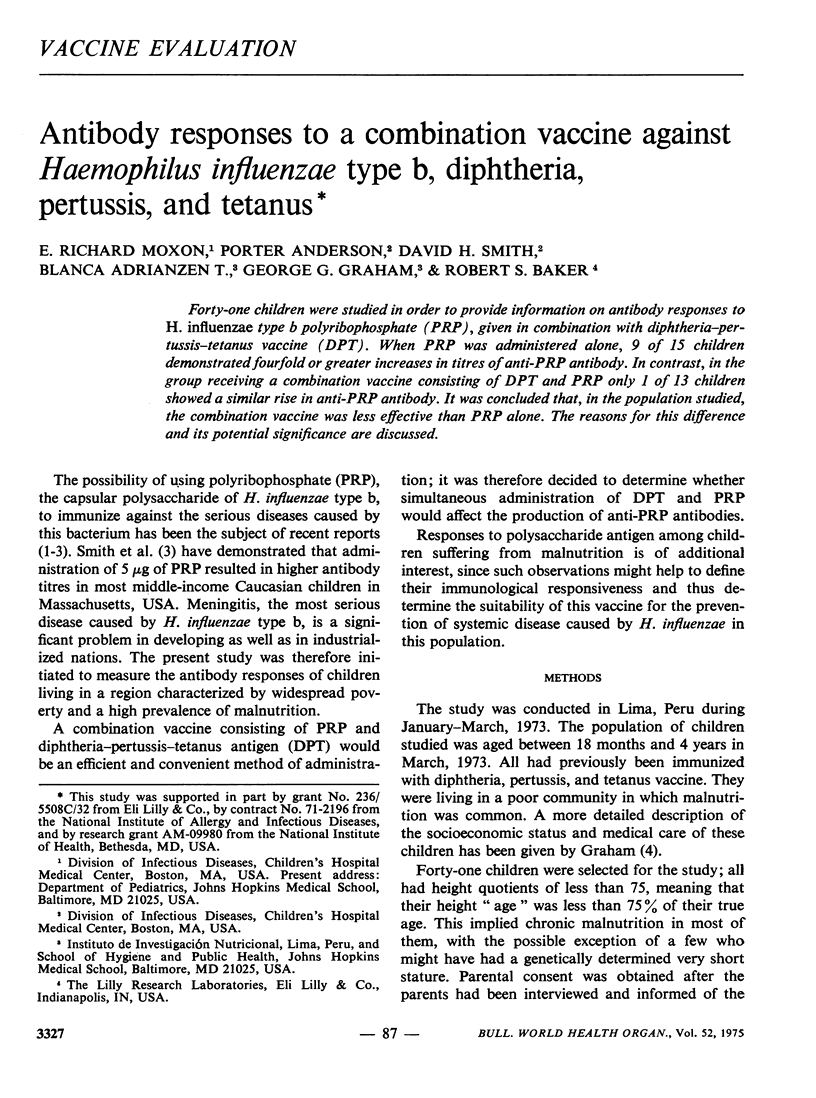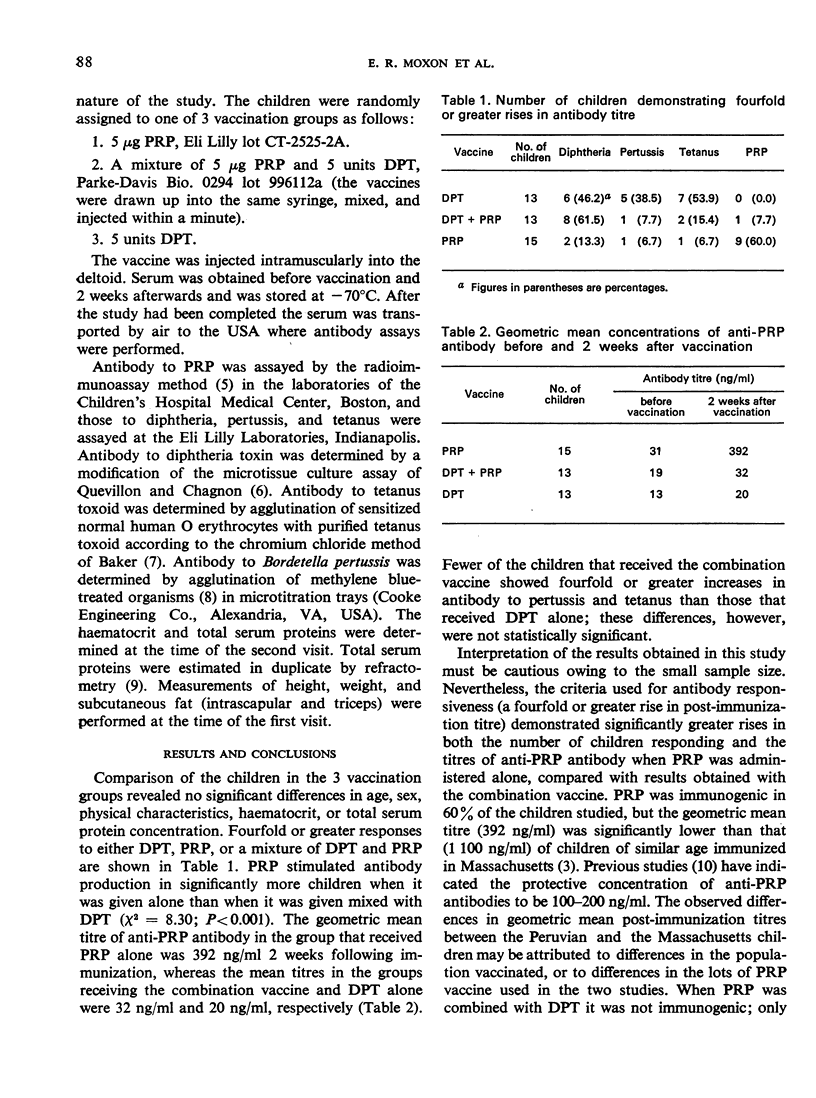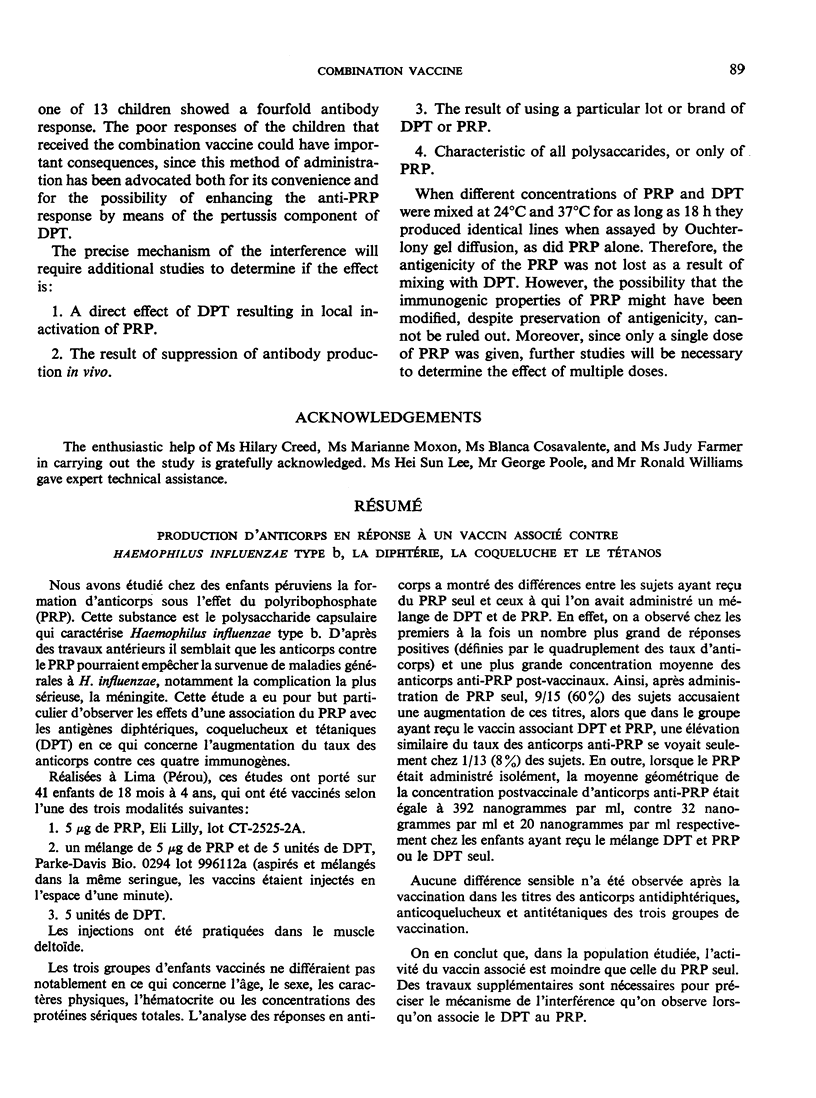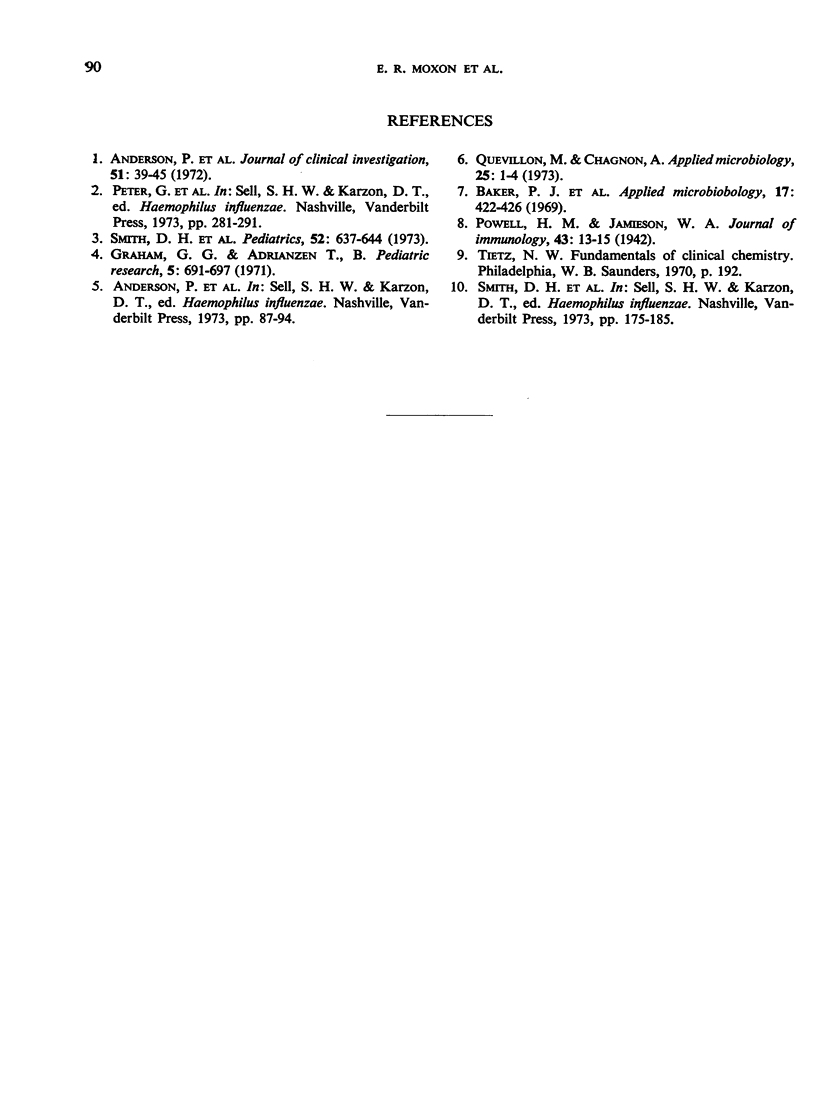Abstract
Forty-one children were studied in order to provide information on antibody responses to H. influenzae type b polyribophosphate (PRP), given in combination with diphtheria—pertussis—tetanus vaccine (DPT). When PRP was administered alone, 9 of 15 children demonstrated fourfold or greater increases in titres of anti-PRP antibody. In contrast, in the group receiving a combination vaccine consisting of DPT and PRP only 1 of 13 children showed a similar rise in anti-PRP antibody. It was concluded that, in the population studied, the combination vaccine was less effective than PRP alone. The reasons for this difference and its potential significance are discussed.
Full text
PDF



Selected References
These references are in PubMed. This may not be the complete list of references from this article.
- Baker P. J., Stashak P. W., Prescott B. Use of erythrocytes sensitized with purified pneumococcal polysaccharides for the assay of antibody and antibody-producing cells. Appl Microbiol. 1969 Mar;17(3):422–426. doi: 10.1128/am.17.3.422-426.1969. [DOI] [PMC free article] [PubMed] [Google Scholar]



